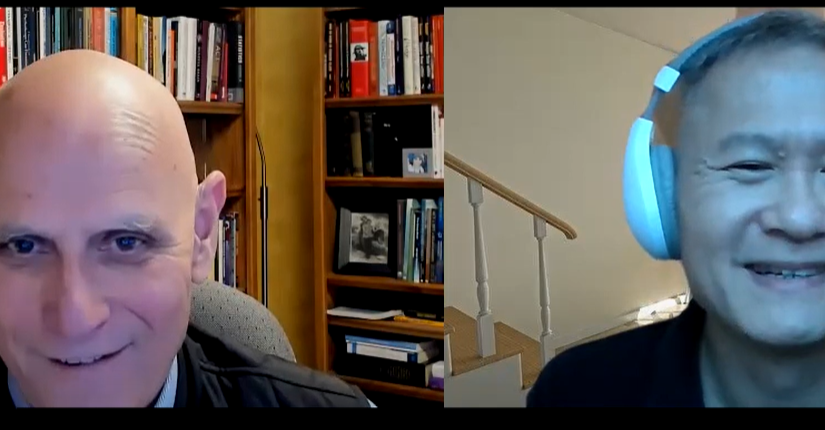by Nathan Chua
If you were me and you were about to talk to one of the living legends of the field you work in, you would probably be laser-focused on what you would ask them when the moment finally arrives. Well, lucky me, I got a once in a lifetime opportunity to interview Dr. Steven Hayes, and my internet connection at home happened to be having problems for about a couple of months already. It was an interview, three months in waiting! My internet connection had been reliable for the most part of many years, and it chose the worst time to act up!
There were also severe financial challenges that had been surrounding me since the beginning of the year. And of course, I forgot to turn on the extension socket where my laptop was plugged so I could charge during what turned out to be a two-hour interview! It was, after all, akin to a live interview since I didn’t know how to edit video materials. So what could go wrong, did go wrong!
To avoid a monumental mishap, I woke up four hours (4 AM folks!) ahead of schedule, took a look at the speed of my internet connection and it was not even ten percent of the speed that I had been paying for. Having been prepared for the worst case scenario, I still had time to drive up to my office and do the interview there.
So as you can see I was flustered on the lead-up to the interview date most especially because I had been having connectivity problems since February of this year! I was so focused on getting the logistics right that I had forgotten to take down a question that I had in my mind as early as three months ago, when Dr. Hayes, through the kind assistance of David Lorscheid, gave me an affirmative response for the interview. That question could have been the last question I would ask and a fitting ending to the interview. It is related to what we do in the study of human behavior and what keeps us going even when it’s hard.
So for those of you who might be interested enough to follow what happens after a once-in-a-lifetime opportunity like this, here is the question, and probably the most important one, that I forgot to ask Steve!!!
Question I forgot:
I was particularly moved by the way you ended your book, “A Liberated Mind.” For those of you who have the audio version of the book, there is a bonus at the epilogue. The voice of the narrator suddenly changes into that familiar raspy voice of a wise man in his seventies as he reads what could be the main thing that he’s dedicated his life’s work to and how it could be summed up.
“Humanity is in a race, a race to create a kinder, more flexible and values-based world—to say it another way, a more loving world that is better able to face the challenges that our own scientific and technological developments present to us. Either we will learn how to create modern minds for this modern world of ours, or we will loom ever closer to disaster…
None of us knows how it will turn out, but based on human history, I put my bet on the human community evolving to meet the challenge. I put my bet on our capacity to choose love over fear. That can only happen one person, couple, family, business, and community at a time. When each of us learns how to put our own mind on a leash, and become more able to open up, show up, and move forward toward what we deeply care about, we shine a light into the darkness that helps others do the same. There is a good word for it: the word is love.
We know how important that is. The crying eight-year-olds within us know. Deep down, we all know that love isn’t everything, it’s the only thing.”
There you go my friends, for all their faults and follies, the work of Dr. Hayes and countless other scientists in human history, can at times be at best, misunderstood and at worst, neglected or even scorned at. The work that he does in the helping business is to make a better world for all of us to experience. A lot of it can be buried underneath these tail-chasing conspiracy theories that researchers and scientists have some kind of hidden notorious agenda in an age where people can be isolated in their own silos of information.
I had a follow up question in mind too: “Could I say that part where you say this is all about love is why you called it Acceptance and Commitment Therapy?” I have seen Dr. Hayes make a joke about the reason behind the name. He would say that he wanted it to be the first in the list of hundreds of approaches and models of therapy. My guess is, the name actually represents with a modicum of words, what love is all about. For love is after all about acceptance and commitment, isn’t it? Well, so goes my one and only chance to get confirmation about this idea.
Like Dr. Fauci or any other advocates for science you and I have seen across thousands of miles, Dr. Hayes has dedicated his life to his work because love matters to him. The bottomline behind the countless hours these people spend in their labs is love, because science is love. That’s what it’s all about lest we forget. Thank you Dr. Hayes for your love for science and the people that your work serves. We have a better, kinder world because of your dedication to something that could still use more appreciation from all.

